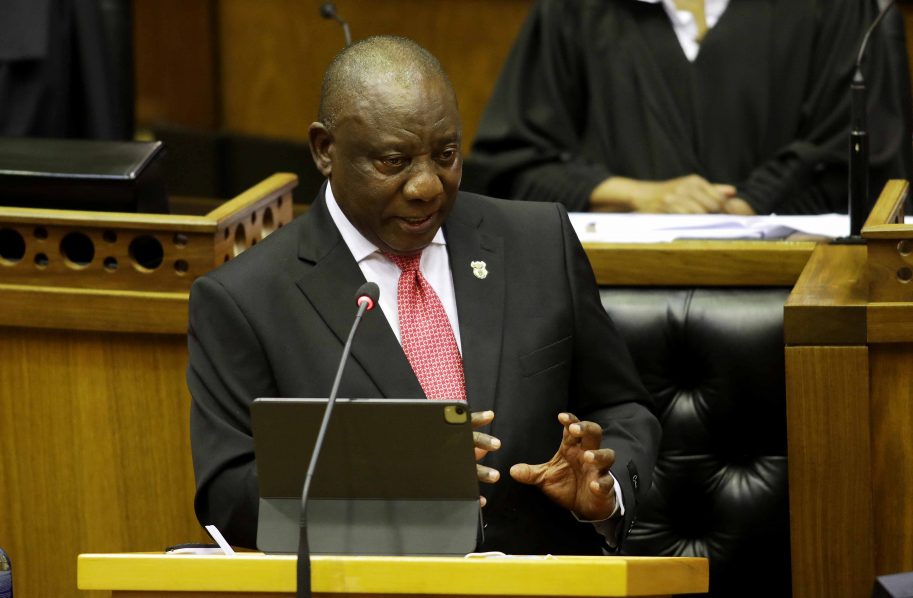South African President Cyril Ramaphosa on Thursday vowed that against all odds, his country will beat the coronavirus pandemic despite a delay in its vaccination roll-out after the country switched vaccines at the 11th hour.
The continent’s worst-hit country halted the start of its immunization campaign after a study showed that the Oxford/AstraZeneca vaccine it had received failed to prevent mild and moderate illness caused by a new, widespread variant discovered in South Africa.
The government has now turned to the Johnson & Johnson formula, of which it has secured nine million doses.
‘The first batch of 80,000 doses will arrive in the country next week,’ Ramaphosa assured in an annual state-of-the-nation address delivered in parliament.
Read Also: South African Economy Could Shrink More Than Forecast
Another 420,000 doses will be delivered over the next four weeks.
The health ministry announced on Sunday night that the country would not administer the AstraZeneca shots — nearly a week after it had taken delivery of a million doses.
The government is now considering trading its AstraZeneca stockpile to other countries not affected by the new variant.
South Africa has also secured 20 million doses of the Pfizer/BioNTech vaccine, Ramaphosa said, with deliveries expected to commence at the end of March.
Ramaphosa said the government had also secured 22 million other doses under the World Health Organization-backed vaccine pooling scheme Covax.
Before delivering his speech to a small number of lawmakers in the National Assembly, Ramaphosa lit a white candle in remembrance of the more than 46,000 people that have died from Covid-19, out of the nearly 1.5 million that have contracted the virus.
The new strain of the Virus which scientists say is very prominent in South African has been a major source of worry for health professionals who claim the new strain is even more contagious and deadly than the first.
AFRICA TODAY NEWS, NEW YORK
